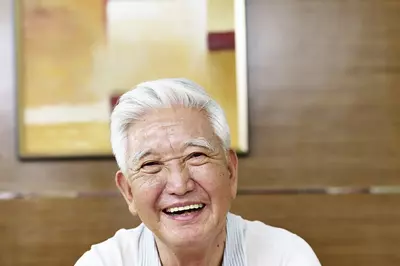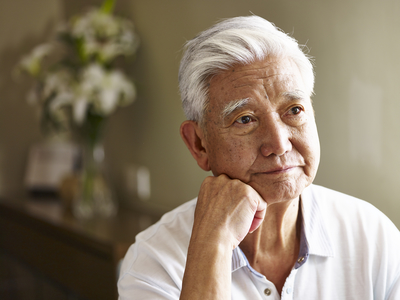On Healing

 The first three months after his wife Vivian died reminded Albert of years earlier, when he was recovering from coronary bypass surgery. Not because death was on his mind, but because he sensed that he was once again in the middle of a long healing process.
The first three months after his wife Vivian died reminded Albert of years earlier, when he was recovering from coronary bypass surgery. Not because death was on his mind, but because he sensed that he was once again in the middle of a long healing process.
He recalled expecting the surgery itself to be the hard part. But the first few weeks after the procedure were intense. He had to go to cardiac rehabilitation several times every week and learn new exercises and techniques for managing his stress. His wife threw out his soda and cigarettes, replacing them with carrot sticks and a pedometer. The incision on his chest itched unbearably at night as it came together to form a thick scar.
Healing, Albert had learned, was not something that simply happened on its own. It required effort from him, support from friends and family, and ultimately a shift in his own perspective.
As the weeks after his wife’s funeral passed and he settled into a new routine without her by his side, Albert realized that his grief would be a similar kind of work - painful but necessary.
What is healing?
In a new article on CaringBridge, Dr. Mary Jo Kreitzer, founder and director of the University of Minnesota’s Earl E. Bakken Center for Spirituality & Healing, describes healing as “a process or a journey toward wholeness.”
While the experience of healing is different for every person, there are fundamental misconceptions that are widely shared. Many people, like Albert after his surgery, believe that healing will simply return things to the way they were before. But he learned that while healing is a move toward wholeness, it’s a new wholeness.
Others believe that since healing is restorative, it should be a painless process. But as Albert learned from the itching of his scar and the deep sadness he felt each morning when he woke up alone, pain is an inevitable part of the journey. “When facing a devastating diagnosis or experiencing the loss of a family member or friend, it is normal to feel overwhelmed, profoundly sad, and even hopeless,” says Dr. Kreitzer. The same goes for healing after a physical injury; the body often experiences pain as it does the work of returning to a “new normal.”
The main thing Dr. Kreitzer wants people to know is that while life may never be the same, healing is possible - even when it feels impossible.
How we heal
“Healing is hard work,” Dr. Kreitzer tells Taking Charge. “There are no ‘rights’ and ‘wrongs.’ And it’s not something that’s easy to do alone. It is a good time to accept offers of help and support.”
 In her essay on CaringBridge, she shares insights from her decades-long nursing career. “Relationships are key to healing,” she says. “Experiencing love and support from those who are important to us is tonic for the body, mind, and soul.”
In her essay on CaringBridge, she shares insights from her decades-long nursing career. “Relationships are key to healing,” she says. “Experiencing love and support from those who are important to us is tonic for the body, mind, and soul.”
This was certainly true for Albert, who relied on Vivan’s support to get him through his bypass recovery, and then his children and extended group of friends to help him cope after she passed away.
In addition, Dr. Kreitzer recommends facing the sense of hopelessness that arises directly. “Avoiding or suppressing your feelings related to the loss likely delays getting to a better place.”
This was also true for Albert, who realized that avoiding thinking about Vivian or looking at her picture was no different from the times he had tried to skip out on his cardiac rehabilitation sessions. “The only way around it is through,” he says.
Whether healing follows grief, surgery, injury, loss, or trauma, the rules are somewhat the same. The main thing Dr. Kreitzer wants people to know is that while life may never be the same, healing is possible - even when it feels impossible.
A year after his wife's passing, Albert still feels a deep pang of sorrow when he sees her photograph in the hallway. But he spends a lot of time with his children and grandchildren these days and has made new friends in the grief group he joined. While he is still sad, he has a different perspective on life now, seeing how precious and fleeting each moment truly is.
“My heart wasn’t the same after the surgery,” he said. “Why would I expect it to be the same after Vivian passed away?”